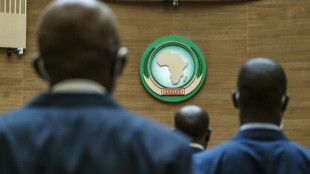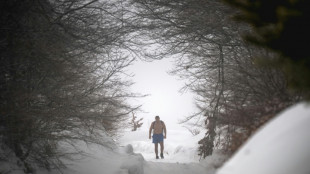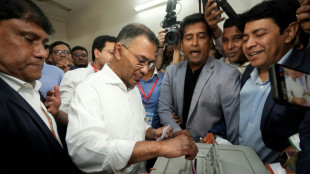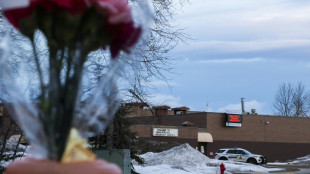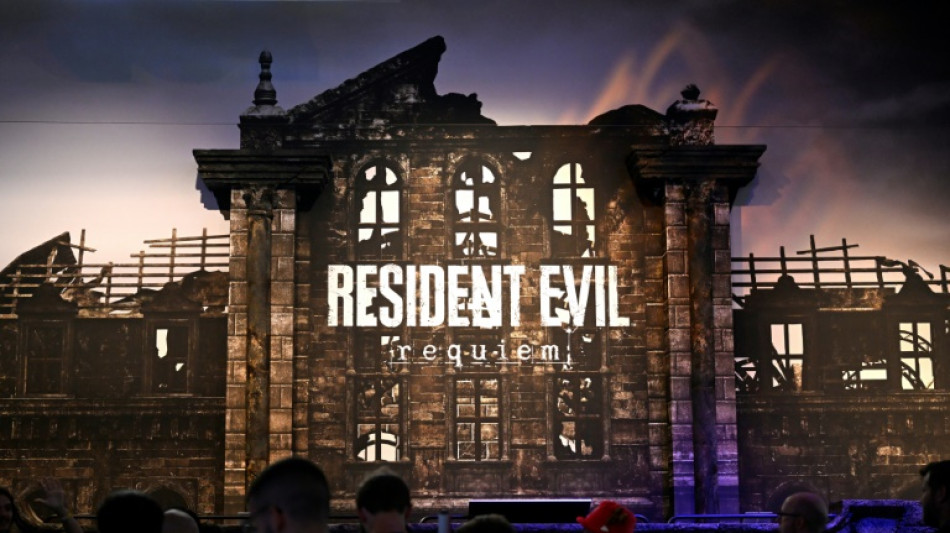

'Resident Evil' makers marvel at 'miracle' longevity
When zombie-blasting survival game "Resident Evil" launched on the very first PlayStation console in 1996, Japanese publishers Capcom never thought the series would reach tens of millions of people or endure for three decades.
The franchise has become Capcom's biggest, spawning a string of sequels as well as film and TV spinoffs and competing over the years with the more psychological "Silent Hill" to give horror fans goosebumps.
"I think it's a miracle that we've made it this far" since the first episode, producer Masato Kumazawa told AFP through an interpreter at the vast Gamescom trade fair in Cologne, Germany, last week.
"Requiem" -- the ninth "Resident Evil" game -- will land on February 27, although the opening minutes were available for fright-hungry gamers in Cologne.
Protagonist Grace is seen being chased by a terrifying blind creature through the halls of a manor house.
Where previous instalments have swept players off to Louisiana and eastern Europe, the new game follows an investigation by a young American woman into her mother's death.
It's a return to a classic formula and the fictional Raccoon City setting of the first few games in the near-30-year-old series from publisher Capcom.
"It was time after those two (previous) games to go back to a very well-known setting," the game's director Koshi Nakanishi said.
More than 170 million copies of "Resident Evil" games have been sold over the franchise's lifetime, with Capcom alternating between original instalments and remakes since 2017.
That makes the series by far the Japanese publisher's most valuable, ahead of well-loved properties like "Street Fighter" and "Monster Hunter".
- 'Universal horror' -
"Surprise and freshness is what keeps the game selling even after 30 years," Kumazawa said.
Each instalment plays with locations, characters and gameplay styles -- from high-octane third-person action to first-person survival adventures like "Requiem" in which players constantly feel hunted.
Kumazawa added that while it's made in Japan, the series is "culturally designed to be universal horror for all fans" worldwide.
While the popularity of "Resident Evil" has inspired film and TV adaptations, it is not the only Japanese-made saga in the survival horror market.
Three years younger than "Resident Evil", the rival game "Silent Hill" has had a less linear journey.
With it Stephen King-influenced atmosphere, the first two instalments scored moderate success before declining in the 2000s, prompting a 10-year hiatus.
But all along "Silent Hill" producer Motoi Okamoto of publisher Konami was sniffing around the indie horror scene for the right developer.
He ultimately landed on Polish studio Bloober Team -- makers of games like "The Medium" and "Blair Witch" -- to remake "Silent Hill 2".
With more than two million copies sold in the months after its October 2024 launch, that release reignited passion for the series and set up the upcoming "Silent Hill f".
- One 'Silent Hill' per year? -
Set to appear on September 25, "f" tells the grisly story of a 1960s-era Japanese high school student, in an original scenario cooked up by Taiwanese studio NeoBards.
The team moved on from the American setting of previous iterations as "that became very tiring on players, it became a very samey experience," Okamoto said, also speaking through an interpreter.
"To make Silent Hill stand out, we needed to partner up with these teams" who bring "a varied background of experience and... individuality," he added.
Bloober Team are already working on a remake of the original "Silent Hill", while US studio Annapurna Interactive are co-developing another title -- feeding Okamoto's ambition to release one game per year in future.
"Resident Evil" producer Kumazawa believes that the "two major Japanese survival horror franchises have stimulated each other" over the almost 30 years they've co-existed.
But Okamoto sees two games offering "very different experiences".
His "Silent Hill" is "a psychological horror game, where you must face up to your own traumas," he outlines.
"Resident Evil" director Nakanishi, by contrast, highlights that in each game in the series "you always beat your enemy in the end."
"It's a very satisfying liberation from the tension that builds up throughout the game".
馮-X.Féng--THT-士蔑報

